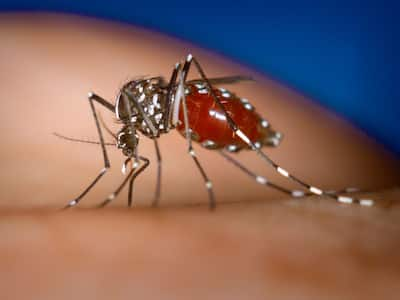
Here are 10 things that you need to know.
Kerala is shakenby a sudden outbreak of dengue fever and rat fever, which has already costthe lives of over 23 people in the state. As per reports, hospital beds in most of the areas are filling up fast with patients complaining of fever-related complications. “There is an increase in number of patients in all districts. Most of these patients have a high fever, body ache and other flu-like symptoms,” an official was quoted as saying. He further added that, in the month of June, at least 1,43,377 people have been confirmed to be infected with fever in Kerala. There was one reported death.
As per data shared by the authorities, in the last month, a total of 3678 people sought treatment in government hospitals with dengue symptoms. Of these, 13 people have already succumbed. In addition to the usual symptoms of the disease, patients are also dealing with diarrhoea and tick fever complications. The growing number of patients suffering from chronic diseases is rapidly increasing in the state, leaving healthcare workers worried for the future.” So far this year, 66 people have died with leptospirosis (rat fever) symptoms. Of these, 27 deaths were confirmed to be due to rat fever,” said an official.
READ RELATED: 6 Ways To Support Mental Health Of Students On Educational Campuses
10 Things You Should Know
If you are residing in Kerala at the moment, or any of your loved ones are there, make sure to update yourself with these 10 important points:
- Dengue fever and rat fever may also be an early symptoms of normal fever.
- If symptoms persist (do not subside within the first three days), make sure to consult a doctor and get a blood test done immediately.
- Ask your doctor for a full check-up and get a diagnosis done.
- Patients with dengue fever may see a fast decrease in platelet counts. If prompt medical interventions are not given to the patient, this could be serious and even fatal.
- If the patient is not given the right care, rat fever can intensify and cause damage to the lungs, liver, kidneys, ears, and ears.
- Stay away from the crowd (do not step out, unless important).
- Children who have a fever shouldn’t attend school.
- Make sure to drink plenty of water, and also check the source of your drinking water.
- Follow a healthy diet to make sure your body has the strength to fight the complications of the disease.
- Maintaining a positive outlook might help you avoid experiencing any mental health problems that the disease’s abrupt onset might bring you.
Total Wellness is now just a click away.
Follow us on
window.addEventListener(‘load’, (event) => {
// $(document).ready(function(){
$(‘#commentbtn’).on(“click”,function(){
(function(d, s, id) { var js, fjs = d.getElementsByTagName(s)[0]; if (d.getElementById(id)) return; js = d.createElement(s); js.id = id; js.src = “//connect.facebook.net/en_US/sdk.js#xfbml=1&version=v2.3”; fjs.parentNode.insertBefore(js, fjs);}(document, ‘script’, ‘facebook-jssdk’));
$(“.cmntbox”).toggle();
});
// });
});







